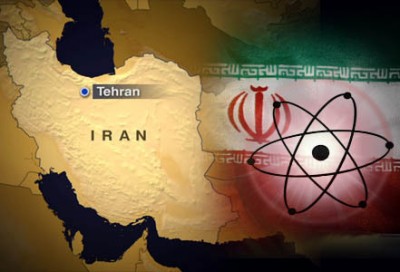 Russia agreed on Tuesday to build two new nuclear power reactors in Iran, with a possibility of six more after that, in a deal that greatly expands nuclear cooperation between the two countries.
Russia agreed on Tuesday to build two new nuclear power reactors in Iran, with a possibility of six more after that, in a deal that greatly expands nuclear cooperation between the two countries.
The agreement shows that Russia is pressing ahead with its own vision for ensuring that Iran does not build nuclear weapons, by supplying civilian power technology that will operate under international monitoring. The approach won acceptance from the International Atomic Energy Agencyand, grudgingly, from the Bush administration over the last decade as Russia completed Iran’s first civilian nuclear plant, at Bushehr on the Persian Gulf coast.
The United States was initially critical of the Russian policy of providing civilian reactors to Iran, but later withdrew its objections. Russia agreed to complete the reactor, which was begun as a German project before the Iranian revolution of 1979, on the condition that all the nuclear fuel used at the plant over its lifetime be supplied and reprocessed by Russian companies.
By demanding that Iran buy Russian reactor fuel, the authorities in Moscow deprived Iran of part of its justification for developing the ability to enrich uranium at home. But the deal has not halted the Iranian enrichment program. Iranian officials say they also require enriched uranium for medical purposes.
The United States, Israel, Saudi Arabia and other nations want the enrichment program to be shut down because the same industrial process, using centrifuges, can be used to produce materials for nuclear weapons. Critics of the Russian policy say any nuclear technology transfer to Iran is dangerous.
The director of the Russian state nuclear power company, Sergei Kiriyenko, signed the agreement for the additional reactors in Moscow on Monday with his Iranian counterpart, Ali Akbar Salehi, at a televised ceremony at the headquarters of the company, known as Rosatom.
The two new reactors will be of the pressurized water type and will be built next to the Bushehr plant, Rosatom said in a statement. Construction and fuel handling will be monitored by the International Atomic Energy Agency, as it was for the existing plant, the company said.
After that, another two reactors could be built at Bushehr and four at a location still to be determined, Rosatom said. The company said it also foresaw setting up local production of zirconium-sheathed fuel rods in Iran, though the uranium would still originate in Russia.
Russia has pressed ahead with exports of nuclear reactors to developing countries, including Iran, despite concern about nuclear safety after the Fukushima disaster in Japan. Russia has built plants in India and is seeking more projects throughout Southeast Asia.
The program helps Russia put to productive civilian use the excess uranium enrichment capacity it has had since the end of the Cold War sharply reduced the country’s military needs. About 40 percent of the world’s uranium enrichment capacity is in Russia.
Also, under legislation that in a freer political system might have proved more difficult to push through Parliament, Russia allows the importation of materials that have been irradiated in nuclear reactors. Spent fuel contains plutonium, which can be used to build bombs, and the legal authority to take spent fuel back to Russia from abroad is central to the country’s plans for expanding its nuclear sales.
The agreement signed with Iran on Tuesday envisions sharing some reactor technology with Iran. The two new reactors, and possibly two more at Bushehr, would be imported from Russia, but after that, further reactors would be built in Iran with Russian assistance, according to a Rosatom statement. All would use Russian fuel, even the Iranian-built ones.
Russia has remained active in negotiations with Iran despite the strains in Moscow’s relations with the West over Ukraine.
Samuel Charap, a senior fellow at the International Institute for Strategic Studies, said the Russian model did not pose a proliferation risk in Iran, though it contradicted broader American efforts to isolate Iran economically over its suspected efforts to build a nuclear bomb.
Russia has reportedly considered accepting Iranian oil as payment in a barter arrangement for the nuclear reactors.
NY Times

Leave a Reply
You must be logged in to post a comment.